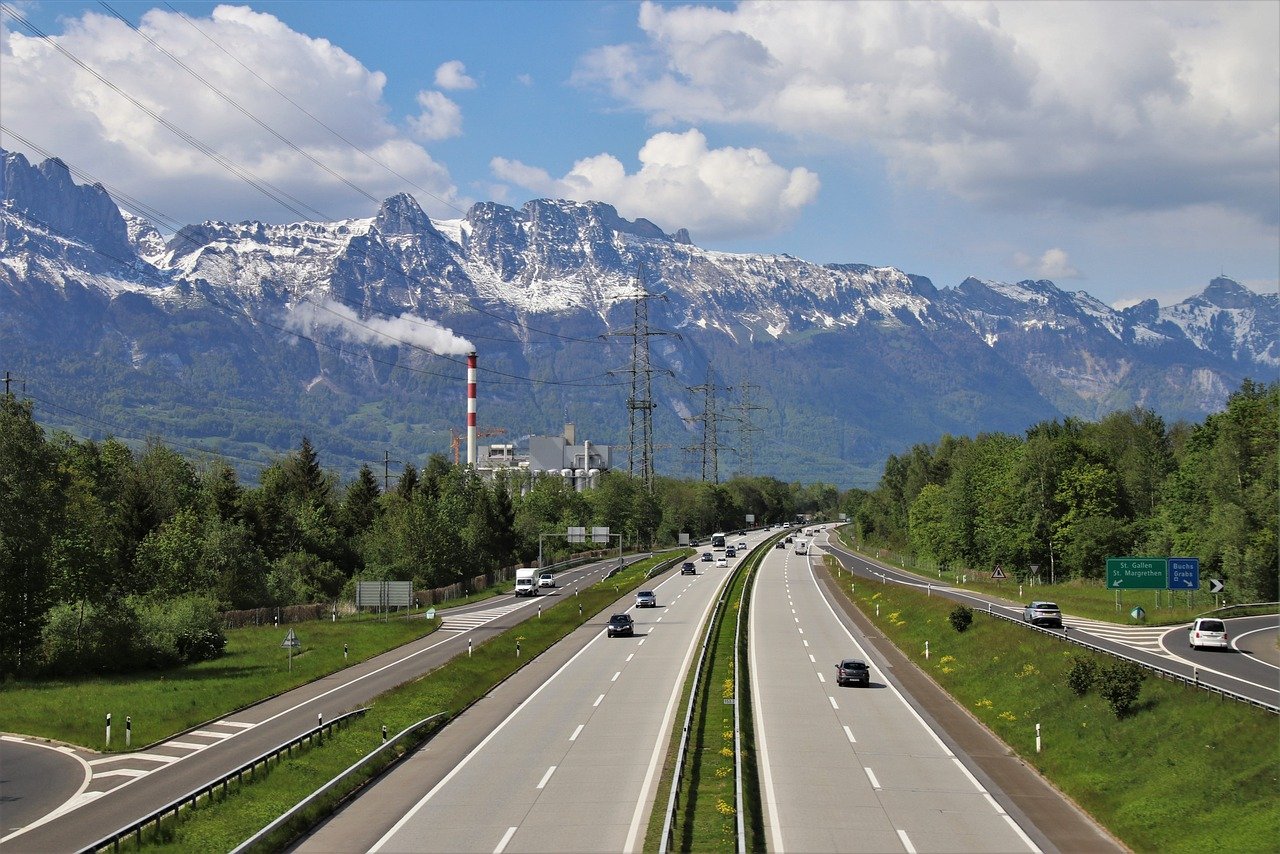Christmas celebrations – but no public holidays
Christmas Day (known as the First Day of Christmas in Germany) and Boxing Day (known as the Second Day of Christmas) fall on a Saturday and Sunday this year – so that means residents in Germany will not receive public holidays. Unlike some other countries like the UK and the USA, Germany does not transfer holidays to weekdays when they fall on the weekend.
Also note that December 24th is not an official public holiday in Germany. But many companies do give their staff December 24th off as a gesture.
It’s the same for New Year’s Eve (Silvester) on December 31st which is also not an official public holiday. Many employers do, however, offer this as a day off too.
Check with your boss to find out what they’ll offer staff this year.
New Chancellor and government incoming
Germany is entering a new post-Angela Merkel era with the Social Democrats’ Olaf Scholz at the helm.
The SPD, Greens and FDP coalition will be voting on their flagship policies in the coalition agreement in the coming days.
If everything goes smoothly in the parties’ internal votes, Scholz will be elected Chancellor in the week starting December 6th.
READ ALSO: Germany’s next government unveils coalition pact
Big changes to contracts
The amendment to the Telecommunications Act (TKG) is bringing several improvements to customer rights.
Under the changes, phone and internet contracts won’t be automatically extended for long periods of time after the contract term ends (usually 12 or 24 months).
From December 1st, consumers will be able to get off their contract by giving a month’s notice after the expiry of the initial contract term.
The regulation applies to both new and existing contracts, reports the Consumer Centre.
Up to this point, these kinds of contracts were usually extended for another year or two years with higher conditions, leading to people having to pay more, if they were not terminated on time.

Internet speed
If the internet is not as fast as promised by the provider, the customer will have the right to pay less in future. For example, if it can be proven that only 50 Mbit/s have been provided to you instead of the promised 100 Mbit/s, you will have the right to reduce the price by 50 percent.
Alternatively, customers can terminate the contract without notice. In the event of a complete internet failure, the consumer is also entitled to compensation if the fault is not repaired within two working days.
Privacy on the net
On December 1st, a law will come into force that aims to simplify the handling of data requests on the internet and to safeguard your digital footprint. The key point is the idea that users will in future be able to decide on access to their information at a central point on their device.
It also clearly mandates that websites must always first obtain the user’s consent to use cookies.
Train timetable change
The winter timetable from rail operator Deutsche Bahn will come into effect on December 12th. The most important changes include more ICE Sprinter trains that connect major cities faster – for example three services a day between Cologne and Berlin without a stopover. There are also new connections for travelling abroad, including night trains.
But there’s some bad news: in long-distance traffic, fares will increase by an average of 1.9 percent. Tickets at the so-called Super-Sparpreis (super saver price) and Sparpreis (saver price) will still be available from €17.90 and €21.50 respectively. The Flexpreis (flexible price) and the prices for route season tickets will increase by an average of 2.9 percent. Bahncards will also become 2.9 percent more expensive.
In local transport, prices will rise by an average of 1.7 percent, monthly and other season tickets as well as single tickets will increase by 1.9 per cent, according to the Association of Regional Railways (TBNE).
READ ALSO: German rail operator Deutsche Bahn set to raise ticket prices
High per-minute charges for 0180 numbers axed
Up until now, the price differences for a service number with the prefix 0180 have often been enormous: according to the Federal Network Agency, a call from the fixed network currently costs 9 cents per minute, whereas from mobile networks it usually costs 42 cents per minute.
The Federal Network Agency ruled in the summer for this to change. On December 1st the prices will therefore be standardised. It means the costs will become significantly cheaper when calling these numbers from mobiles.
Transitional period for compulsory measles vaccination ends
The compulsory vaccination for measles was introduced by law in Germany in March 2020.
It means that children attending Kindergarten, school or other community facilities have to be vaccinated against the disease. Teachers, carers and other staff in certain institutions including medical field also have to be vaccinated.
For people who already worked in one of these settings before March 2020, a transitional period was initially granted until July 31st 2021 giving them time to provide proof of vaccination. This was extended by five months to December 31st 2021 due to the pandemic.
After this date, people who do not comply with the vaccination obligation are banned from caring for or working with others, and could face fines of up to €2,500 if they flout the rule. People who cannot get vaccinated for medical reasons and all those born before 1970 are exempt from the measles vaccination obligation.

Stricter rules for animal experiments
From the beginning of December, there will be stricter rules on animal experiments, according to the amendment of the Ordinance on the Protection of Experimental Animals.
It means that animal experiments no longer only have to be reported, but also approved by the authorities. The new law applies primarily to the authorisation of medicinal products, as well as to animal experiments for education, training or further education.
What else to look out for in December:
With Germany experiencing a fierce fourth Covid wave, and the Omicron variant of Covid causing major disruption, there’s still a lot of uncertainty over possible restrictions in December. Here are a few points to consider when it comes to Covid.
More travel restrictions?
Germany has so far put in place a travel ban on people coming from South Africa due to fears over the Omicron variant. Other countries are also putting in place travel restrictions, including the UK. Some places, like Israel, have taken an even tougher stance and banned all foreign travellers from entry.
It remains to be seen if the travel rules will get even tighter. This is bad news for people hoping to travel for the festive period. We’ll keep you posted.
Contact restrictions?
There have also been repeated calls from health experts in Germany to impose contact restrictions due to the spiralling number of Covid infections, and the burden on hospitals.
However, it could be difficult to justify – not least because German politicians have vowed for months not to put lockdown restrictions on vaccinated people, and the Infection Protection Act was recently reformed to let the Covid ‘state of emergency powers’ expire.
It’s not impossible, though. It may be the case that unvaccinated people are ordered to reduce their social contacts. Or it could apply to everyone if the government believes there’s no other choice.
New Year – will there be parties and fireworks?
We’ll be ringing in 2022 on Silvester – but at this stage who knows what that will look like.
The corks are supposed to pop at the Brandenburg Gate in Berlin – Germany’s biggest New Year’s Eve party. A two-day stage programme is planned under the motto “Celebrate at the Gate”. But will the pandemic allow it? Last New Year’s Eve, ZDF had to broadcast a show without an audience.
And will street fireworks be possible again? In 2020, the purchase of fireworks was banned throughout Germany because of the pandemic, and some cities also set up prohibited zones.
Some groups, including the police union (GdP) and some doctors, want to see this ban again in light of the worsening situation and pressure on medics.

Will the Covid jab for children over five be introduced in December?
The European Medicines Agency (EMA) in November recommended that the BioNTech/Pfizer vaccination be made available for children over the age of five.
And Germany’s Standing Commission on Vaccination (STIKO) plans to issue its recommendation on the vaccination for children aged five to 11 before the end of the year. “Our goal is to have this recommendation ready by the end of December, if possible by the start of the delivery of the children’s vaccine to the states,” STIKO chairman Thomas Mertens told the Funke Media Group.
According to outgoing Health Minister Jens Spahn, 2.4 million doses of the vaccine for this age group will be made available to the federal states in a first delivery starting on December 20th.
There are around 4.5 million children in this age group.
READ ALSO: German vaccines panel to recommend jabs to children aged five and over




 Please whitelist us to continue reading.
Please whitelist us to continue reading.
Member comments